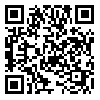Aims and
Background: Surgery is a factor of anxiety which creates a
physiological reaction in body. As a result of this physiological response of
the body, breathing, heart rate and blood pressure would increase. The present
study was done to evaluate the effect of wordless music on some physiological
indices and anxiety of patients.
Materials and Methods: This research is a randomized controlled
clinical trial, which has been based on 60 patients undergoing spinal
anesthesia for surgery in hospitals affiliated to Ilam University of medical
sciences, during the year 1392. Including criteria were : the patient's
willingness to participate in the study, non-emergency surgery, being between
20 to 40 years old, undergoing spinal anesthesia for the first time ,as well as
having hemodynamic stability (systolic blood pressure greater than 90 mm
Hg, absence of any dangerous form of
heart rate and heart rhythm whatsoever between 60-100) . In both groups, vital
signs including diastolic blood pressure, systolic blood pressure, pulse rate,
respiratory rate, and arterial blood O2 saturation were recorded. After the baseline assessment patients underwent spinal anesthesia by the
anesthesiologist, and immediately the wordless song was played for the case
group with mp3 player and disposable headphone for 10 minutes. Immediately
afterwards, again the arterial blood saturation level and the vital signs were
assessed. The same action was taken for the control group without playing the
music.
Findings: Comparison between physiological indices
before and after the intervention in the two groups showed significant
differences so that broadcasting the song without words had beneficial effect
on the average number of pulse pressure , systolic and diastolic blood pressure,and respiratory rate
(p<0.05). However there was no significant difference considering the
percentage of arterial blood saturation (p>0.05).
Conclusion: Hearing wordless song
had a significant effect on systolic and diastolic blood pressures, heart rate,
and respiratory rate but It did not
affect the percentage of arterial oxygen saturation.
Received: 2014.09.7 | Accepted: 2014.09.7 | Published: 2014.09.7
| Rights and permissions | |
 |
This work is licensed under a Creative Commons Attribution-NonCommercial 4.0 International License. |


